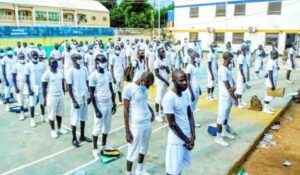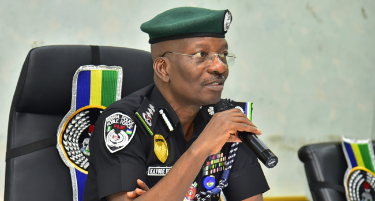The Nigerian Police Force, under the leadership of Inspector-General Kayode Egbetokun, has rejected the recently released list of successful applicants for constable and specialist roles. This list was provided by the Police Service Commission (PSC) but has been flagged for numerous irregularities and corruption.

The former PSC Chairman, Solomon Arase, announced the list on June 4, describing the selection process as rigorous and aimed at improving the force’s capacity and effectiveness. However, just six days after the list was made public, Arase was dismissed by President Bola Tinubu, who appointed Hashimu Argungu, a retired Deputy Inspector-General of Police, as the new chairman.
Olumuyiwa Adejobi, the Force Public Relations Officer, issued a statement on Saturday detailing the numerous problems with the list. According to Adejobi, the recruitment process was marred by significant irregularities. Many names on the list belonged to individuals who did not apply or did not participate in the recruitment exercise. Furthermore, several candidates who failed either the Computer-Based Test (CBT) or the physical screening still appeared on the list. Some individuals who were disqualified for being medically unfit also made the list. Perhaps most concerning were allegations of financial misconduct and corruption, suggesting that unqualified individuals were able to secure places on the list through bribes or other improper means.
Inspector-General Egbetokun expressed his strong disapproval of the list in a formal letter to Arase on June 10, coinciding with the former chairman’s dismissal. Egbetokun’s objections emphasized that the PSC’s power to recruit does not extend to including unqualified or untrained individuals. He noted that the police force ultimately bears the consequences of such flawed recruitment, facing accusations of inefficiency when poorly trained recruits fail to perform adequately.
The police force has therefore distanced itself from the controversial list and called for a complete review of the recruitment process. Egbetokun stressed the need for a transparent and credible selection process that ensures only qualified, competent, and trainable individuals are brought into the Nigeria Police Force. This demand aligns with President Tinubu’s vision for comprehensive police reform.
Adejobi’s statement outlined several critical points. Firstly, numerous names on the list did not belong to applicants who took part in the recruitment process. Secondly, the list included candidates who had failed mandatory tests. Thirdly, individuals who were medically unfit but still appeared on the list raised serious concerns about the integrity of the recruitment process. Additionally, the allegations of financial misconduct and corruption pointed to a deeper problem within the recruitment system.
Inspector-General Egbetokun, in his letter to Arase, acknowledged the PSC’s authority to recruit for the police as affirmed by the Supreme Court. However, he highlighted that this authority does not permit the inclusion of unqualified individuals. The police force is committed to ensuring that the recruitment process is conducted properly, with a focus on bringing in individuals who meet all the necessary criteria.
Egbetokun’s letter also criticized the PSC’s handling of the Joint Recruitment Board. This board, established to oversee the recruitment process, was supposed to include the Deputy Inspector General of Police in charge of Training and Development as its secretary. However, the board was reportedly sidelined, and the final list of successful candidates was released without its consent.
The Nigeria Police Force is calling for a total review of the recruitment process. Egbetokun emphasized the need for a transparent and credible system that would recruit qualified, competent, and trainable individuals. This approach, he argued, is essential for the betterment of the police force and the country.
Victoria Ibiama




